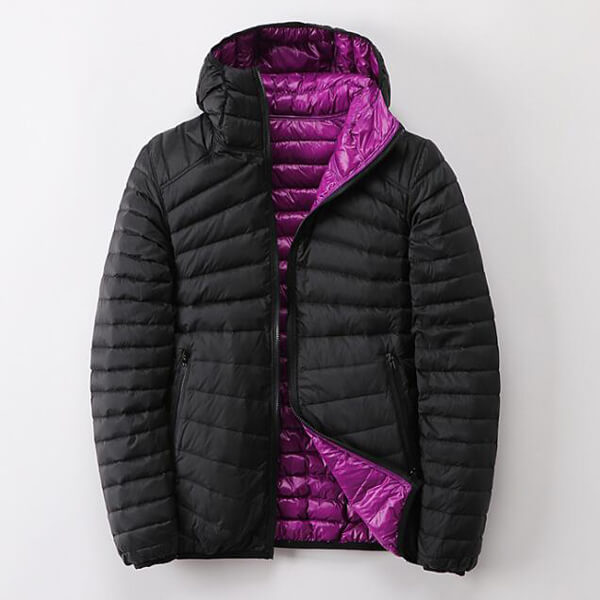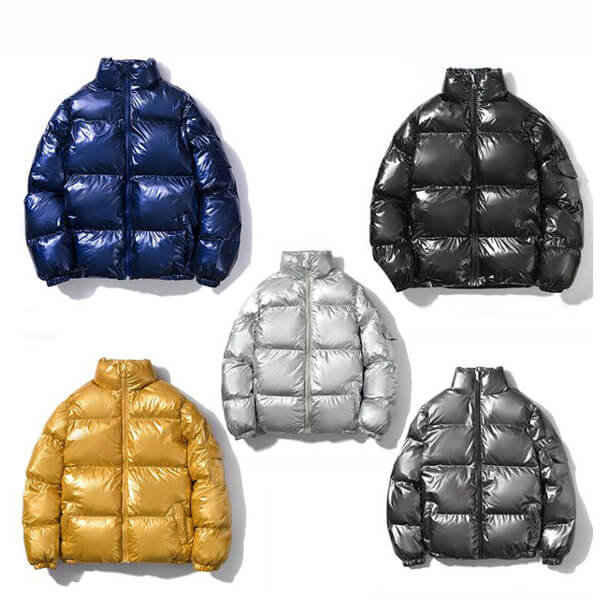As fashion trends come and go, there will always be new variations on old staples. Jeans became bell-bottoms in the ‘70s, sweaters became hoodies later, and “athleisure” is virtually ubiquitous nowadays. But new fashions can leave you feeling out of the loop too.
Puffer jackets are exactly the kind of trendy, popular clothing item we’re talking about. You might see a dozen people wearing one in the fall, yet never know what they’re called. It can be frustrating, to say the least.
This article is put together to help answer all your questions about puffer jackets. Read on for some insights and plenty of research on what puffer jackets are. Plus, we’ve tacked on more information to help you select a puffer jacket and address why they’re so popular.
What Is A Puffer Jacket?
Puffer Jackets are cold-weather coats that, for several reasons, have come to dominate the fall and winter jacket markets. The most common look of a puffer jacket is a quilted or pattern-sewn synthetic jacket. They are usually filled with synthetic fibers, though some puffer jackets do have organic fillings.
Almost as universal as the jean jacket or Canada Goose winter wear jackets, puffer jackets come in virtually every color, shape, cut, and trim. The average puffer jacket fits close to the chest, has a rectangular profile, closes with a front zipper, and is very lightweight.
Also known as “puffer shells” in the outdoor clothing market, puffer jackets were originally sold in recreational outfitters like REI and other high-end retailers. Decades later, puffer jackets can be quite affordable and fit into extreme sporting occasions and casual everyday walks around town. Puffer jackets are the everyperson’s outerwear.
What Is The Difference Between A Down Jacket And A Puffer Jacket?
The difference between a down jacket and a puffer jacket is small but notable. It’s always a good idea to understand which is which before going to the store to purchase one or order one online.
Down jackets are pretty self-explanatory. They are outerwear garments with a down filling.
What is down? Good question. Down is part of a duck’s or goose’s heat-trapping feathers that keep them insulated in cold temperatures. You might look at a goose in the winter and wonder how they keep their feet and legs warm. Down is part of the reason that such birds can regulate body temperature and stay warm year-round.
Besides their unique (and organic) filling, down jackets have a few other interesting aspects to keep in mind. Firstly, they tend to be expensive. Down pillows and down comforters also fall under this category. Secondly, they’re hard to beat for keeping in warmth.
When looking at down jackets, there are two metrics to judge them by. First, there is the weight of a down jacket. A 400g down jacket is roughly four times denser (and warmer) than a 100g jacket. Second, there is so-called “fill power.” The higher the fill power the fluffier and thicker the down.
Puffer jackets, which are different from down jackets in many ways, can sometimes have down fillings. This begs the question, what do you call a puffer jacket filled with down? We’ll leave the answers for some other time. But really, what’s different about puffer jackets?
When we talk about puffer jackets, we are usually talking about weather wear with synthetic fills. Since synthetic fibers are more durable and don’t clump as down can, puffer jackets are also stronger and longer-lasting on average.
The word “puffer” comes from the appearance of the shiny outer shell of the jacket. Traditional puffer jackets use quilted or horizontal stitches to keep the filling in place. These designs lend puffer jackets their streamlined technical look and, if the filling is especially dense, a “puffy” air.

How And Why To Choose A Puffer Jacket
Puffer jackets are everywhere. They’re at a corner cafe, in the supermarket, visiting family, on board a plane. Whenever the colder months approach, it’s always a good idea to flip through your wardrobe to check if you have the coat you need.
Need a new coat? Considering a puffer jacket? We’ve got all the tips to help you choose the right one. But first, let’s talk about why you should choose a puffer (in case you’re on the fence!)
First off, puffer jackets offer excellent insulation and warmth with very little bulk. High-quality synthetic or down filling can keep you comfortable in extreme weather. Sub-zero winters are easy to endure with a quality puffer jacket that’s half the size of a bulky winter coat.
Style and versatility go hand in hand with puffer jackets. There is virtually no end to the number of combinations of shell color, material, fill level, stitch design, or length. The ancestor of the puffer jacket was once called the “quilted jacket” but today’s puffers can be fitted, functional, decorative, or traditional all at once.

Men’s Thickened Shiny Puffer Jacket
The last reason to choose a puffer jacket is its durability. Many owners use their mid-priced puffers for five years or more with no insulation loss. These garments are great for hard work or easy living. Plus, they’re a cinch to clean–just wipe off with warm water and you’re ready!
So, you’ve chosen a puffer jacket for your next winter or fall coat. How do you choose the right one?
When you see the price tags of some of the premium puffer jackets out there, it can be a little eye-watering. You want to choose the jacket that’s going to work best for you. You want a quality product with quality fill and a long-lasting design. We’ve all been there.
There are three elements to determining how warm a puffer jacket will be:
- Fill type (synthetic or down)
- Fill power (a measure of how insulating the fill is)
- Fill weight
Let’s address each point separately. For fill type, down is going to be more expensive, lighter, and often warmer. Today’s synthetic and plant-based fillers (such as kapok) give down a run for their money though!
Fill power is a number that expresses how efficient your fill is at insulating the body. Premium down fill can score as high as 850FP while synthetics range closer to 600FP at their top end.
Fill weight is also important. It measures the net weight of the jacket insulation. An advantage of synthetic puffer jackets is that they weigh exponentially less than down jackets. So, while a quality duck down jacket may rate higher in terms of fill power, its added weight could make it unattractive to you.
The next thing to determine is what kind of puffer jacket filling you want. To be brief, there are loads of choices. Some common materials are:
- Wadded fills (such as Primaloft products), which are hard-wearing and strong
- Loose fills (like Thermoball or PlumaFill) which feel and look like natural down
- Blended fills
If you’re deciding between a down and a synthetic puffer jacket, keep in mind that synthetics are allergy-free while down can trigger allergic responses.
Finally, let’s run down some comparisons between down and synthetic fills.
- Synthetic puffers are easy to clean in a regular cold wash cycle while down is not.
- Down doesn’t do as well of a job as synthetic in repelling moisture.
- Synthetic jackets are normally less expensive than down.
- Down tends to compress its fillings faster than down, leading to less “puff.”
- Down jackets should be sustainably sourced, while synthetic products do not.
- Synthetic jackets come in thinner varieties for better layering potential.
Summary
As you might see from above, the world of puffer jackets isn’t all so cut-and-dried. Besides down and synthetic fillings, there are dozens of variables to choose from when searching for your ideal jacket.
We hope our guide to puffer jackets has helped you take the first step towards exploring the popular and exciting universe of puffer jackets. Now, all that’s left to do is buy your own!
